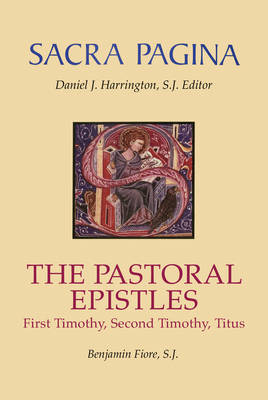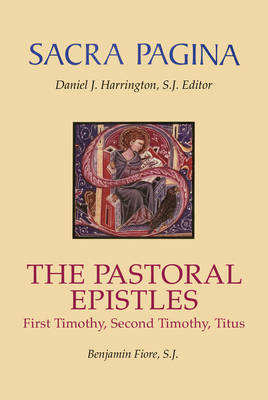
- Retrait gratuit dans votre magasin Club
- 7.000.000 titres dans notre catalogue
- Payer en toute sécurité
- Toujours un magasin près de chez vous
- Retrait gratuit dans votre magasin Club
- 7.000.0000 titres dans notre catalogue
- Payer en toute sécurité
- Toujours un magasin près de chez vous
Sacra Pagina: The Pastoral Epistles
First Timothy, Second Timothy, and Titus Volume 12
Benjamin FioreDescription
First and Second Timothy and Titus have for many years borne the collective title The Pastoral Epistles." Both their style and their content make it difficult to locate them within the corpus of Pauline letters, and recent scholarship most often considers them pseudonymous, works that imitate Paul's letters but apply the apostle's teaching to the concerns of a later time, two or more decades after Paul's death.
The Pastorals differ from Paul's own letters in being addressed to single individuals, coworkers of Paul who have been placed in charge of particular churches 'Timothy apparently in Ephesus, Titus in Crete. They provide instruction for community leaders, both the individual addressees and other leaders whom they will appoint. The specification of certain offices within the local churches is one of the features that appear to locate these works in a later phase of church development.
In this commentary Benjamin Fiore, SJ, places the Pastorals in their historical and literary context. The reader will find here a solid introduction to parallel literary forms in Latin and Greek literature and particular descriptions of the way in which these documents use ancient rhetorical forms to achieve their paraenetic and hortatory purpose. Drawing on his parish experience as well as his academic training, Fiore also provides reflections on the contemporary pastoral application of these books, giving readers a renewed appreciation for the "pastoral" label these epistles bear.
Benjamin Fiore, SJ, is president and professor of religious studies at Campion College at the University of Regina (Canada).
Spécifications
Parties prenantes
- Auteur(s) :
- Editeur:
Contenu
- Nombre de pages :
- 280
- Langue:
- Anglais
- Collection :
- Tome:
- n° 12
Caractéristiques
- EAN:
- 9780814658147
- Date de parution :
- 01-10-07
- Format:
- Livre relié
- Format numérique:
- Genaaid
- Dimensions :
- 161 mm x 237 mm
- Poids :
- 580 g

Les avis
Nous publions uniquement les avis qui respectent les conditions requises. Consultez nos conditions pour les avis.






